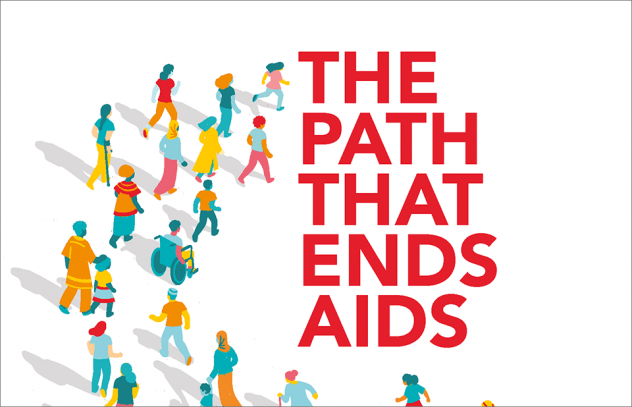2023 UNAIDS GLOBAL AIDS UPDATE RAPORT
Foreword
This report makes clear that there is a path to end AIDS. Taking that path will help ensure preparedness to address other pandemic challenges, and advance progress across the Sustainable Development Goals.
The data and case studies in the report make it very clear what that path is. It is not a mystery. It is a choice. Some leaders are already following the path—and succeeding. It is inspiring to note that Botswana, Eswatini, Rwanda and Zimbabwe have already achieved the 95–95–95 targets, and at least 16 other countries (including 7 in sub-Saharan Africa) are close to doing so.
HIV responses succeed when they are anchored in strong political leadership to follow the evidence; to tackle the inequalities holding back progress; to enable communities and civil society organizations in their vital roles in the response; and to ensure sufficient and sustainable funding.
This report describes in detail how countries that put people and communities first in their policies and programmes are already leading the world on the journey to end AIDS by 2030. We need all leaders to get on that path.
Ending AIDS is an opportunity for a uniquely powerful legacy for today’s leaders. They have the chance to be remembered by future generations as those who ensured the policies, programmes and investments that put a stop to the world’s deadliest pandemic. They can save millions of lives and protect the health of us all. They can show what leadership can do.
None of this will come automatically, however. AIDS claimed a life every minute in 2022. Millions of people still miss out on treatment, including 43% of children living with HIV.
The path that ends AIDS requires collaboration—south and north, governments and communities, the United Nations and Member States together. And it requires bold leadership. The route map in this report shows how success is possible, in this decade.
Progress has been strongest in the countries and regions that have the most financial investments, such as in eastern and southern Africa.
Progress has been strengthened by ensuring legal and policy frameworks do not undermine but, instead, enable rights. Several countries have removed harmful laws in 2022 and 2023, including five (Antigua and Barbuda, Barbados, Cook Islands, Saint Kitts and Nevis, Singapore) that have decriminalized same-sex sexual relations. Existing laws to protect the rights of vulnerable people have been strengthened in other countries (Central African Republic, Ghana, India, Kazakhstan, Kuwait, Spain). This courage is what generates the opportunity for success.
We are hopeful, but it is not the relaxed optimism that might come if all was heading as it should be. It is, instead, a hope rooted in seeing the opportunity for success—an opportunity dependent on action. The facts and figures in this report do not show that we, as a world, are already on the path—but they show that we can be. The way is clear.
We join with communities around the world in urging leaders to demonstrate the will to lead us along the right path.
https://thepath.unaids.org/wp-content/themes/unaids2023/assets/files/2023_report.pdf

